Less than 50% of people living in 16 countries do not trust government, media, or NGOs to do what is right to address their health needs and concerns, based on the responses from over 15,000 people living in 16 countries whose opinions are captured in the 2024 Edelman Trust Barometer’s Special Report on Trust and Health.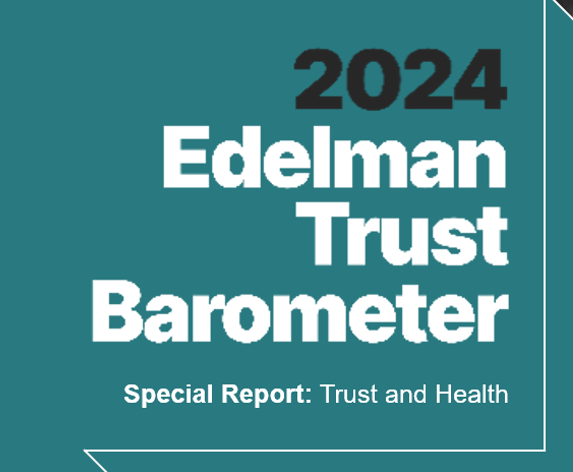
Edelman launched the 2024 Trust Barometer earlier this year during the Davos World Economic Forum, and today released this round of research focused on health. Globally (among health citizens in the 16 countries polled in the study), trust for health support has fallen across all institutions, with employers ranking first for trust (among 68% of people) — but falling by 4 percentage points in the past year — and business in general ranking second for trust, by 52% of people (also declining by 4 points over the year).
The lack of trust across many dimensions threatens health outcomes. 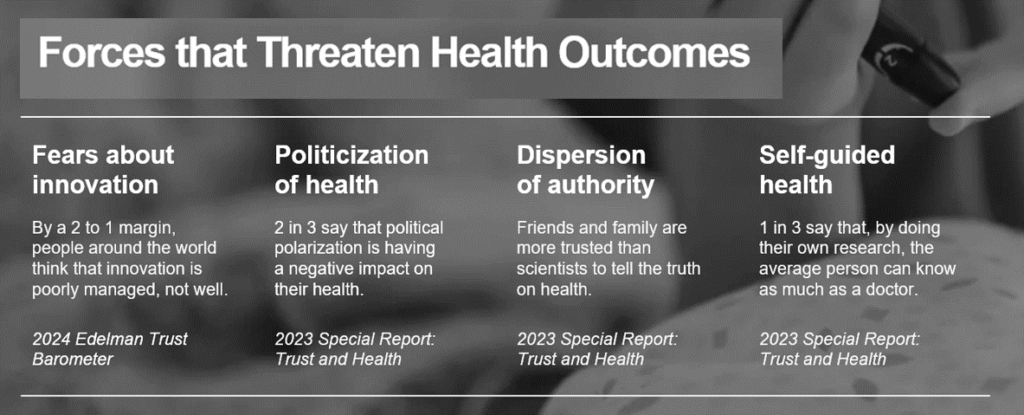
The annual Trust Barometer published in January focused on a top-line of lack of trust in innovation — and through the health lens, trust plays a particularly impactful role because fears about innovation can prevent people from seeking the health care that can be beneficial to them as individual patients as well as members of their communities in local/regional public health ecosystems.
In addition, the politicization of health, dispersion of authority (with friends and family at least as trusted as scientists to “tell the truth on health”), and self-guided health (not necessarily in partnership with a licensed clinicians) can all be risks for health outcomes. 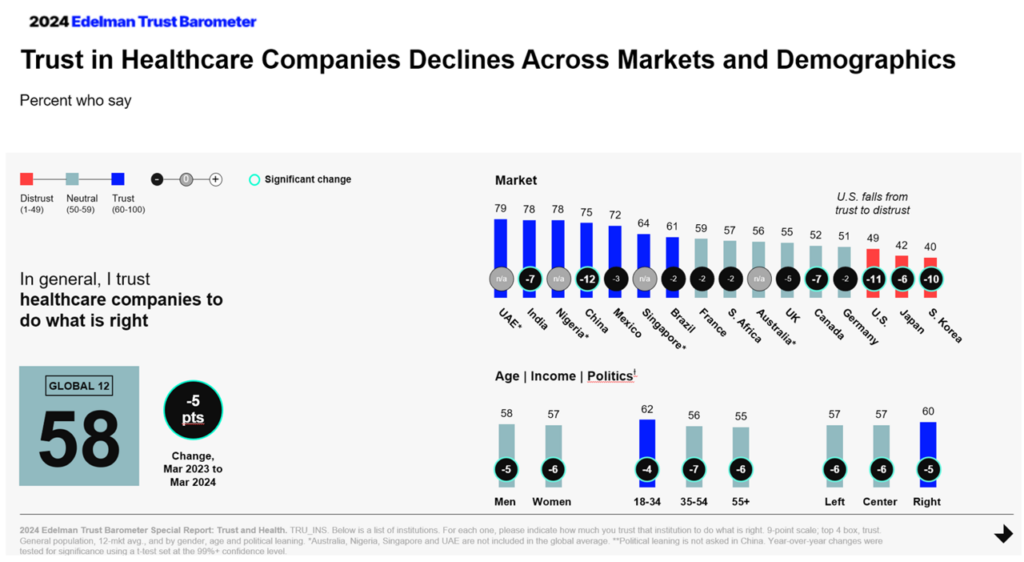
Looking at the U.S. data compared with health citizens in other countries in the mix, we see that trust in health care companies declined by 11 points in the past year — only second in trust erosion to people living in China. In the U.S., only 49% of people said they trust health care companies to do what is right for “my” health care. That less than 1 in 2 people falls far below the Global average of 58% (down 6 points from last year). 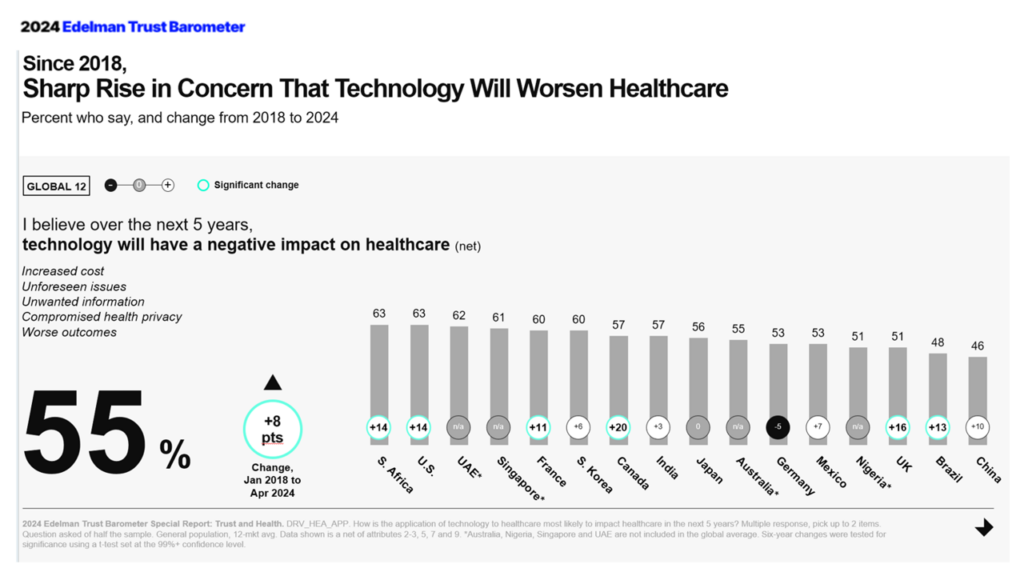
The U.S. is also something of an outlier when it comes to trust in technology — that is, a sharp rise in concern that technology will worsen health care. This chart shows that double digit increase in concerns about tech’s worsening impact on health care, up 14 points among U.S. health citizens with 63% of people feeling tech-concern.
In a webinar discussing implications from this research, Richard Edelman discussed Americans’ concerns about the growing role of AI in health care as part of this uptick in worry, saying that “AI is not automatically good,” noting potential risks to costs (increasing) as well as privacy.
Trust in media for “my” healthcare also plummeted in the U.S. in the past year, falling by 21 percentage points to only 35% of American health citizens trusting the media to report accurate information about health care. The global average for media-trust in health was 43 percent in this study, with declines of 14 points overall — 50% greater in the U.S. (at 21 points).
There is much more data and nuance to explore in the report, and I recommend you do so whether you operate in health care in the public sector (government), in technology, or health care services — the latter, and especially doctors, being among the most trusted touch-points for truth in health care. 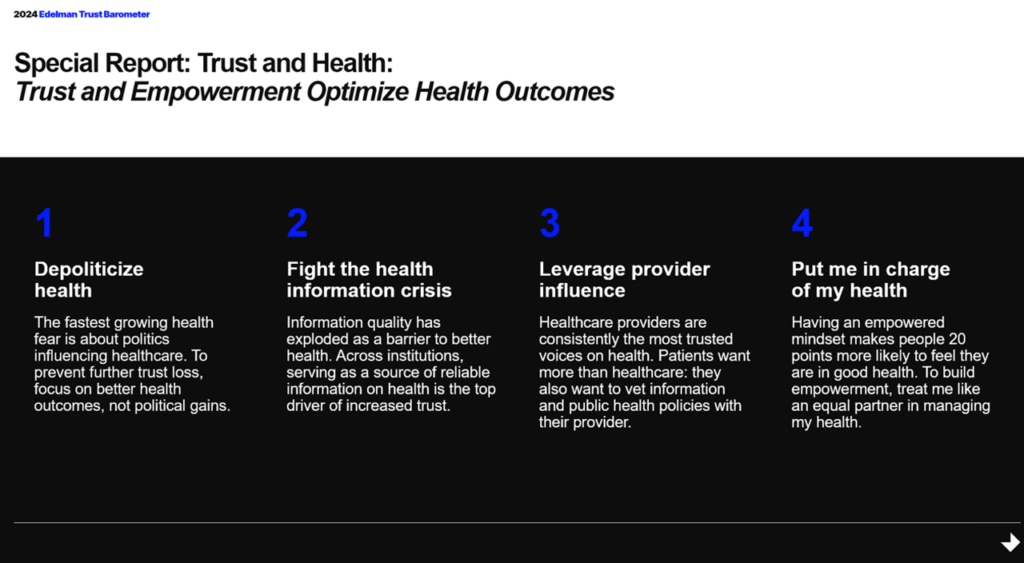
Health Populi’s Hot Points: This summary chart emphasizes Edelman’s findings that coupling trust with supporting health citizens in personal health care empowerment benefits health outcomes. It’s the flip of the chart above on “forces that threaten health outcomes – calling out the importance of de-politicizing health, fighting the health information crisis, leveraging provider influence, and supporting health citizens in their self-care. 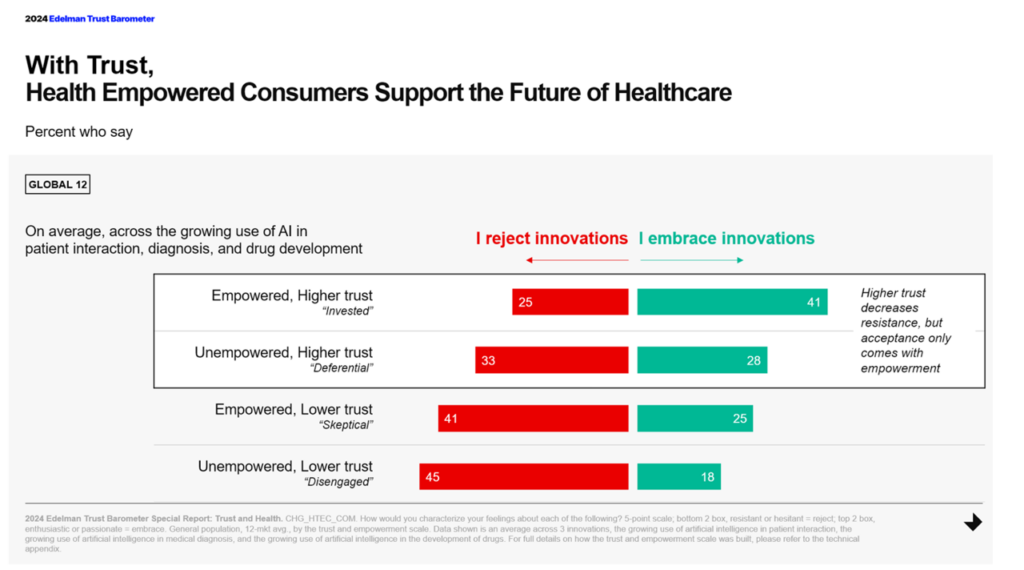
Here we see the flywheel that initiates when health citizens feel empowered: the more trust, the more health engagement, the greater the likelihood to access vaccines and to self-care for prevention.
Doing so then sets off a virtuous cycle of health that was statistically documented in Connected, the work of Christakis and Fowler: our positive health behaviors inspire others in our social circles (online and offline) to do the same. Conversely, our negative behaviors — say, smoking or binge drinking — kick off an unvirtuous cycle of negative health behaviors among our innermost circles and those in our network’s networks.
So the big learning from the 2024 Edelman Trust Barometer is….trust (coupled with empowerment) together make a superpower for public health.


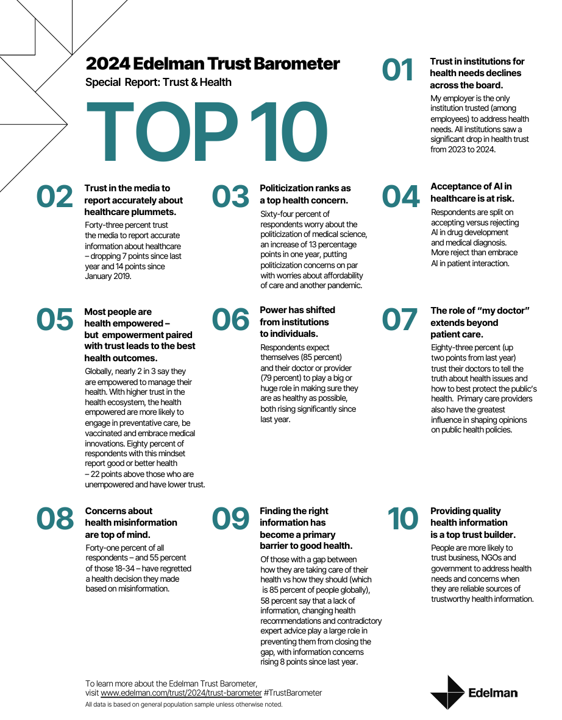


 Thanks to Feedspot for naming this blog, Health Populi, as a
Thanks to Feedspot for naming this blog, Health Populi, as a